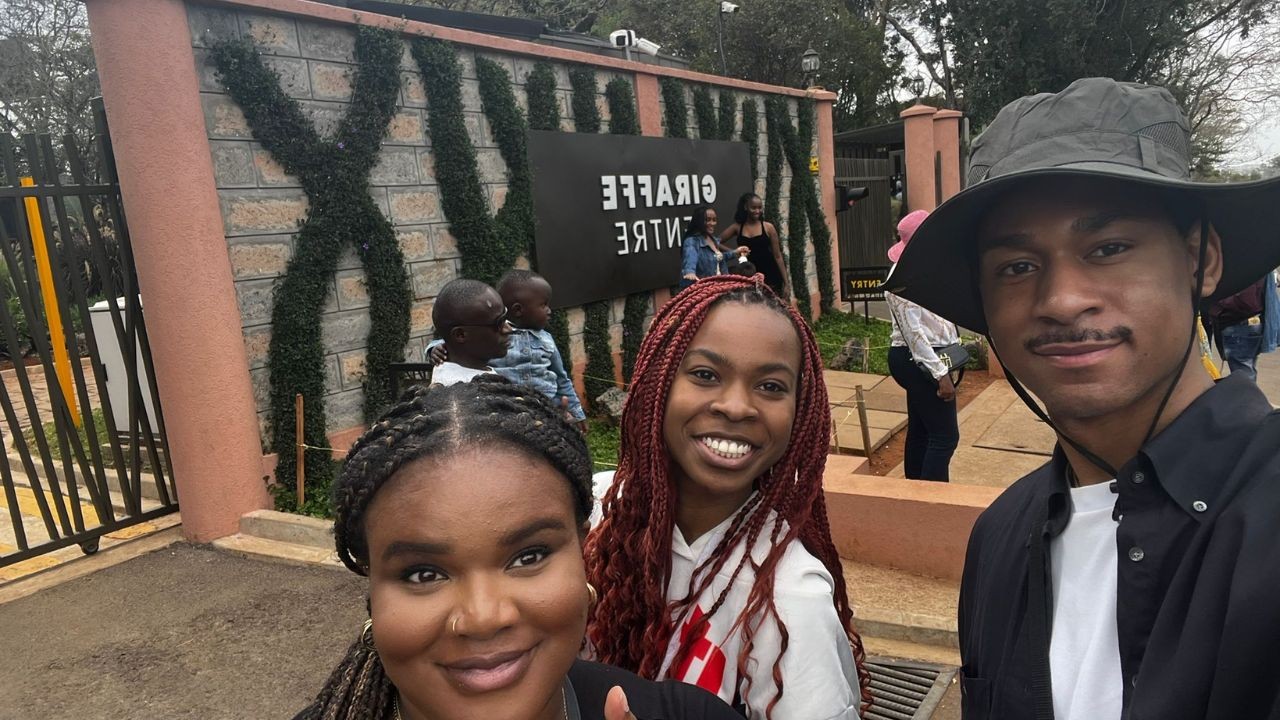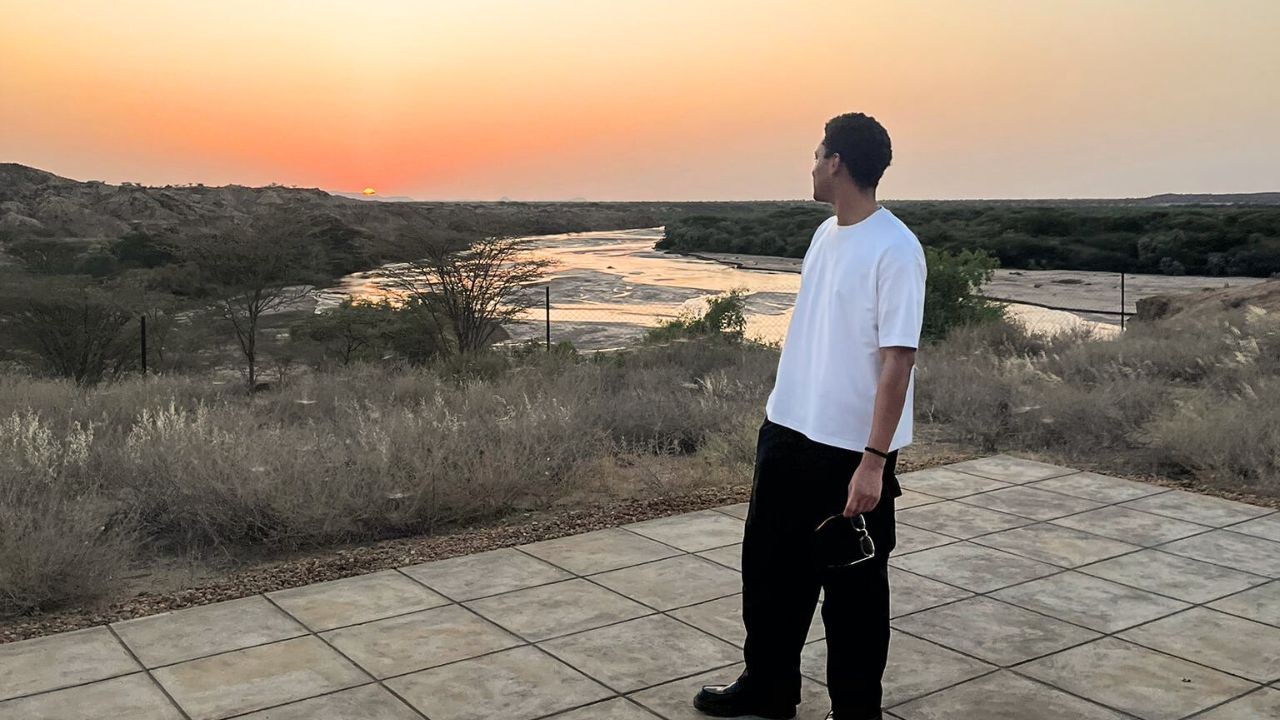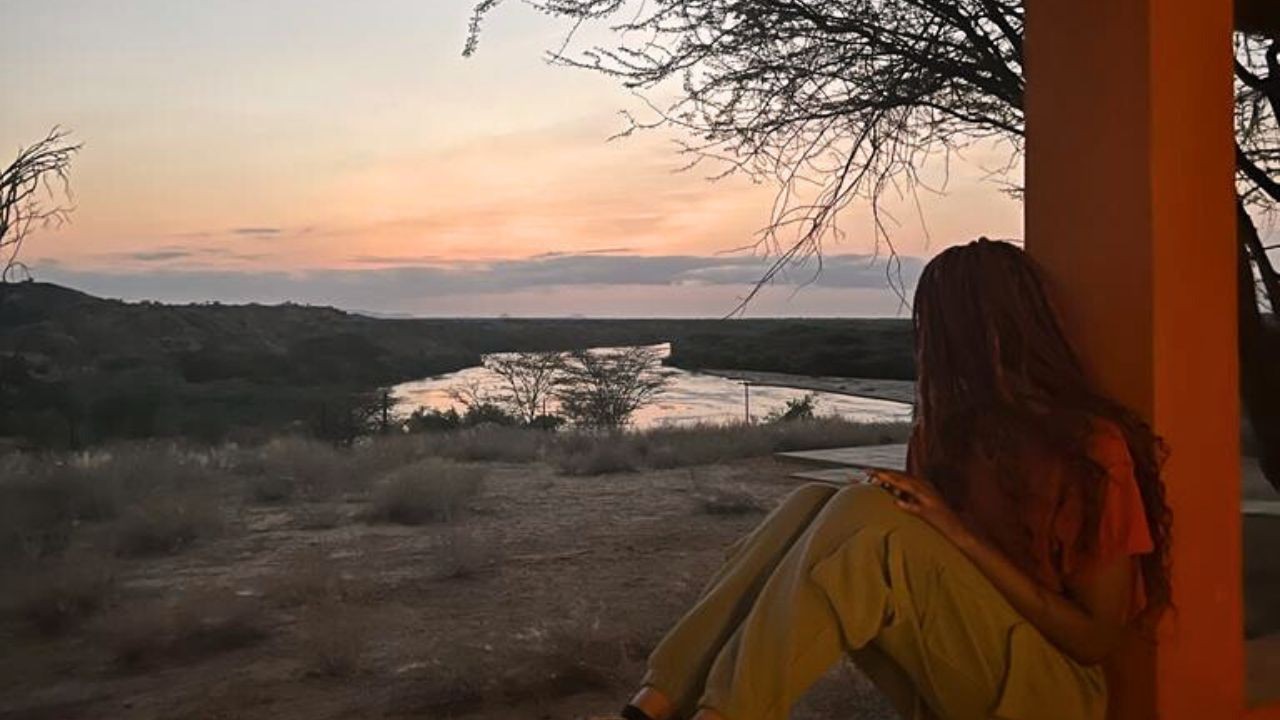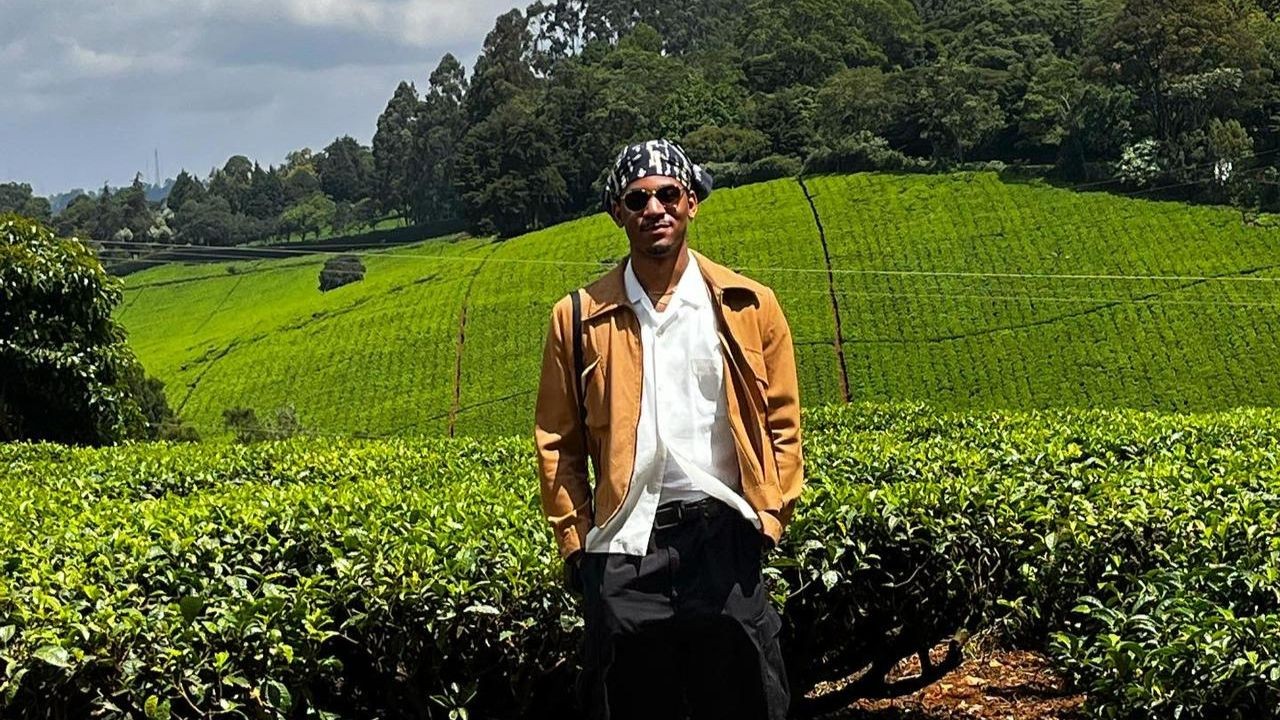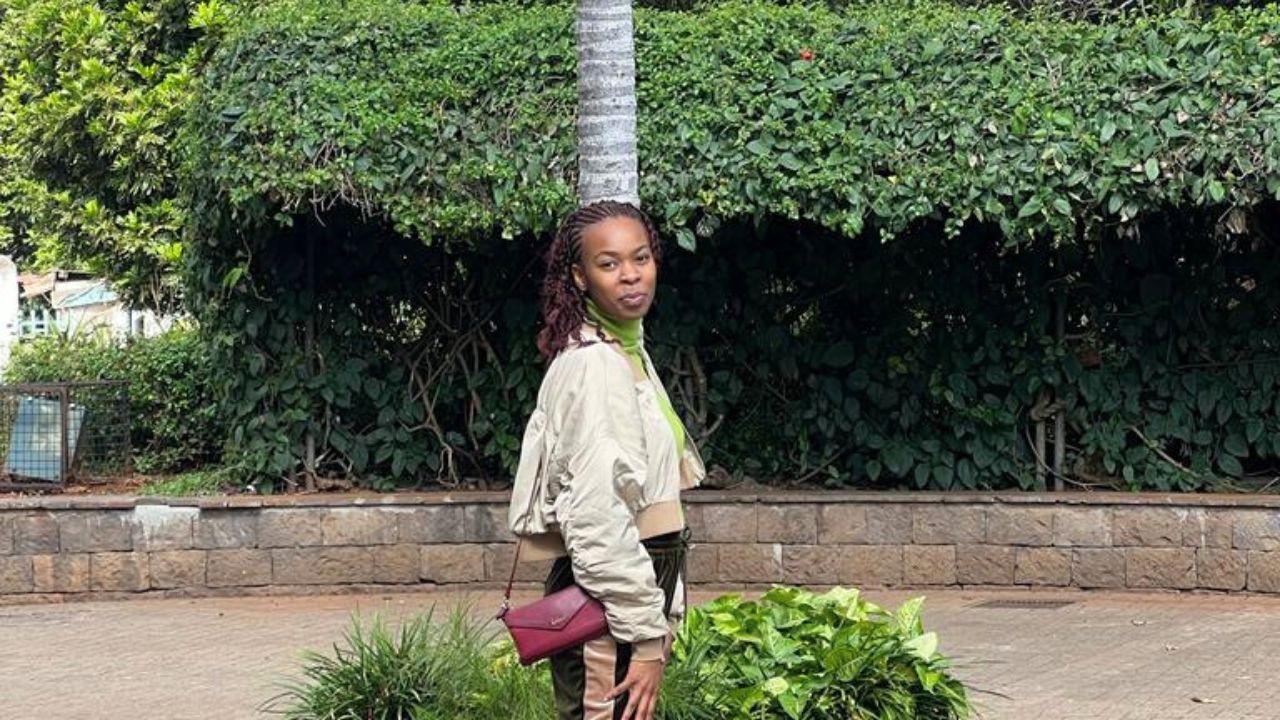Learning Beyond Boundaries: Student Internship Experiences that Shape Futures
Meet Chukwuma Okereke MPH'24 and Jasmine Aissata Kouyate GSAS'25 as they share their incredible internship experiences at the Nairobi Center.
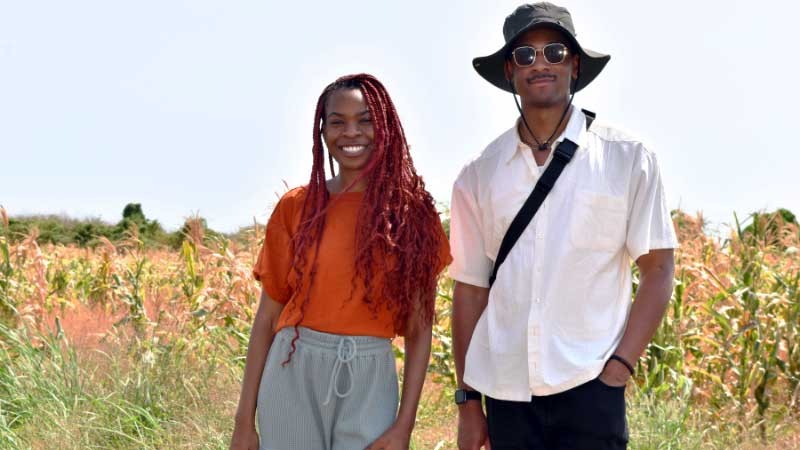
The Nairobi Center is pleased to spotlight the incredible internship experiences of Chukwuma Okereke MPH'24 from Columbia Mailman School of Public Health and Jasmine Aissata Kouyate GSAS'25, who is set her to start her Columbia journey at the Graduate School of Arts and Sciences in fall 2023. These indefatigable interns have embarked on transformative journeys, immersing themselves in real-world challenges and gaining invaluable knowledge and skills in their respective fields within a few months of interning at the Nairobi Center.
What did the students have to say about their internship experience at the Global Center in Nairobi?
Tell us more about yourself and your educational background. Why were you interested in this internship opportunity?
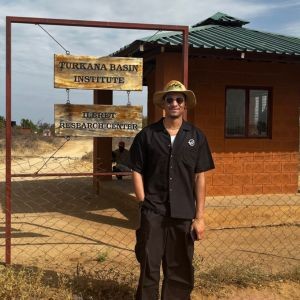
Chukwuma Okereke: I am an incoming 2nd year MPH student at the Columbia University Mailman School of Public Health. Before graduate school, I earned a BA in Medical Anthropology/Global Health at the University of Washington. I was interested in this internship for a few reasons, including the location, subject matter, and skills I would gain. In my search for internships, I was very interested in finding one in Africa, as multiple friends had previously told me how amazing it was and that they would even be interested in moving here. Another reason was that I could engage in developing a program evaluation format for countries in Africa under IIPAN. I saw this as an opportunity to develop a skill I was highly interested in strengthening, as program evaluation has been a consistent interest throughout my public health career.
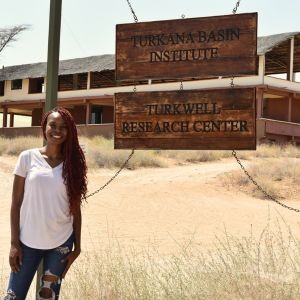
Jasmine Aissata Kouyate: I graduated with a Bachelor of Arts in English Literature from Swarthmore College in Pennsylvania, where I focused on global literature and different platforms for storytelling, such as film, theater, and graphic narrative. It inspired me to pursue an international internship in Communications and Program Management in Nairobi to enhance my storytelling and oratory experiences in a city known for its strong creative arts and music scene. I hope to use what I’ve learned about the performing arts community in Nairobi to inform my experience at Columbia University as a Master’s student in African American and African Diaspora Studies this Fall.
During your time at CGC | Nairobi, were there any specific skills or knowledge areas you were able to develop through your internship experience?
Chukwuma: During my time, I developed my program evaluation skills as I assisted in developing a monitoring and evaluation plan for a nutrition program at Kenyatta National Hospital in collaboration with IIPAN in New York. I also developed my informational interviewing and research skills as I contributed to a documentary we were making about climate change's effects on pastoralist communities. I also conducted a literature review to develop the context for Turkana and Marsabit counties, where another one of our projects was focused.
Jasmine: While interning for CGC | Nairobi, I have had amazing opportunities to develop my technological, software, and communication skills. Prior to working for CGC, most of my experience was founded in writing and program management opportunities. Being at this organization has allowed me to supplement my skills and become practiced in technological and aesthetic forms of communication and storytelling.
Did you have any opportunities to interact with the Center’s partners or visiting faculty during your internship, and how were these interactions?
Chukwuma: Yes, I had the opportunity to interact with multiple faculty at the Center, including Dr. Richard Deckelbaum, Dr. Lawrence Stanberry and Dr. Monique Jethwani, two of which contribute to a project I am working on. These interactions were great, and I learned a lot from the varied public health experiences and subject areas they brought to the Center. They have all been very supportive and encouraged further connection when I return to New York.
Jasmine: I had the opportunity to collaborate with the students and teachers of a Nairobi junior prep school called Fairvale School, which included working with Dr. Director Madame Lucy N Ndung'u, Headteacher Madame Caroline Wanyonyi, and Anto Neosoul. It was a tangible and hands-on learning opportunity to learn about Nairobi's public education system from the headteacher and the director's professional perspectives. It was additionally meaningful to observe and meet Fairvale's students who were directly affected by the limited literary resources available and what it meant for them to receive more learning materials. This trip to the school embodied so many culturally intersectional experiences. For instance, it was my first time learning how Kenyan schools are institutionally organized, participating in an extensive book donation, and learning about the school's commitment to nutritional meals for students while contending with a limited financial budget. The resilience of Fairvale's students, teachers, and headteacher sparked a desire to continue working alongside secondary school students in the U.S. within predominantly Black neighborhoods who may not have access to substantial reading materials due to lack of institutional funding.
Image Carousel with 5 slides
A carousel is a rotating set of images. Use the previous and next buttons to change the displayed slide
-
Slide 1: Chukwuma Okereke MPH'24 and Jasmine Aissata Kouyate GSAS'25 in action during the documentary filming in Turkana County
-
Slide 2: Chukwuma Okereke MPH'24 and Jasmine Aissata Kouyate GSAS'25 preparing to interview a farmer in Turkana county
-
Slide 3: The fisherman's route - conversing and traversing Lake Turkana with Jasmine Aissata Kouyate GSAS'25 and Chukwuma Okereke MPH'24
-
Slide 4: Chukwuma Okereke MPH'24 with Dr. Wafaa El-Sadr, the Executive Vice President of Columbia Global during the initial field site visit to Northern Kenya
-
Slide 5: The journey comes to an end for Chukwuma Okereke MPH'24 and Jasmine Aissata Kouyate GSAS'25 pose for a photo at TBI as the climate change documentary comes to an end
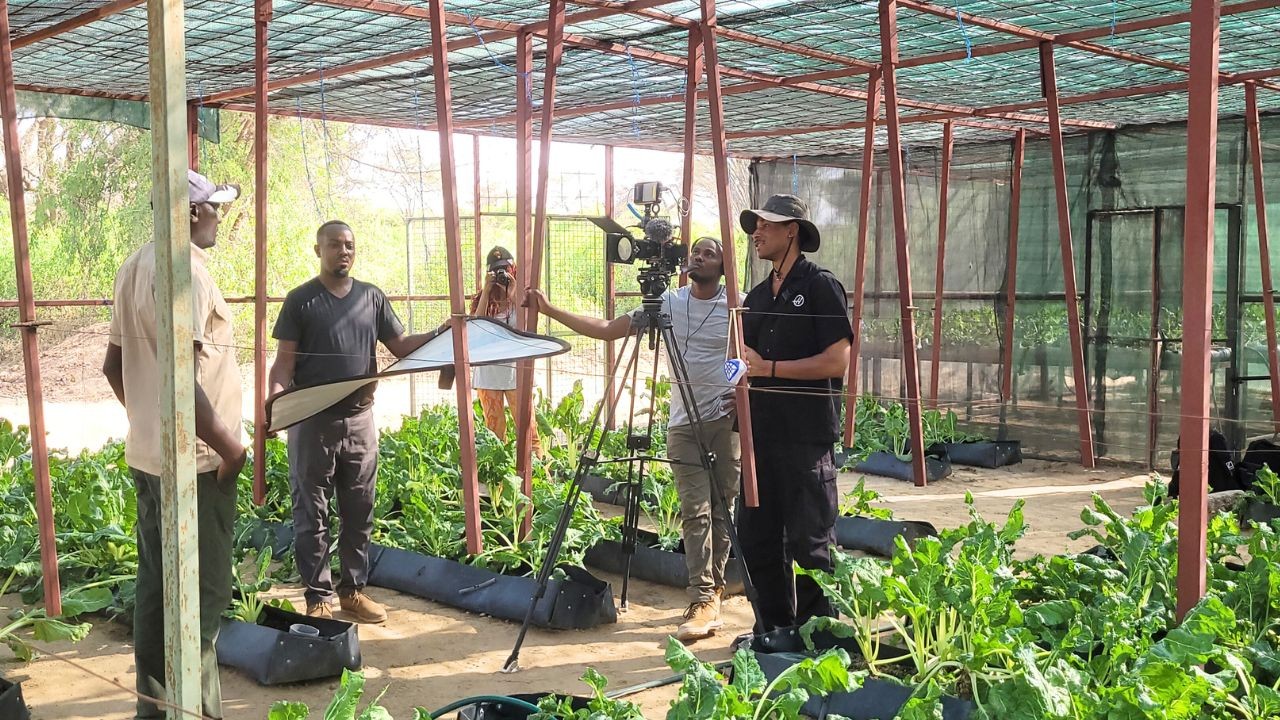
Chukwuma Okereke MPH'24 and Jasmine Aissata Kouyate GSAS'25 in action during the documentary filming in Turkana County
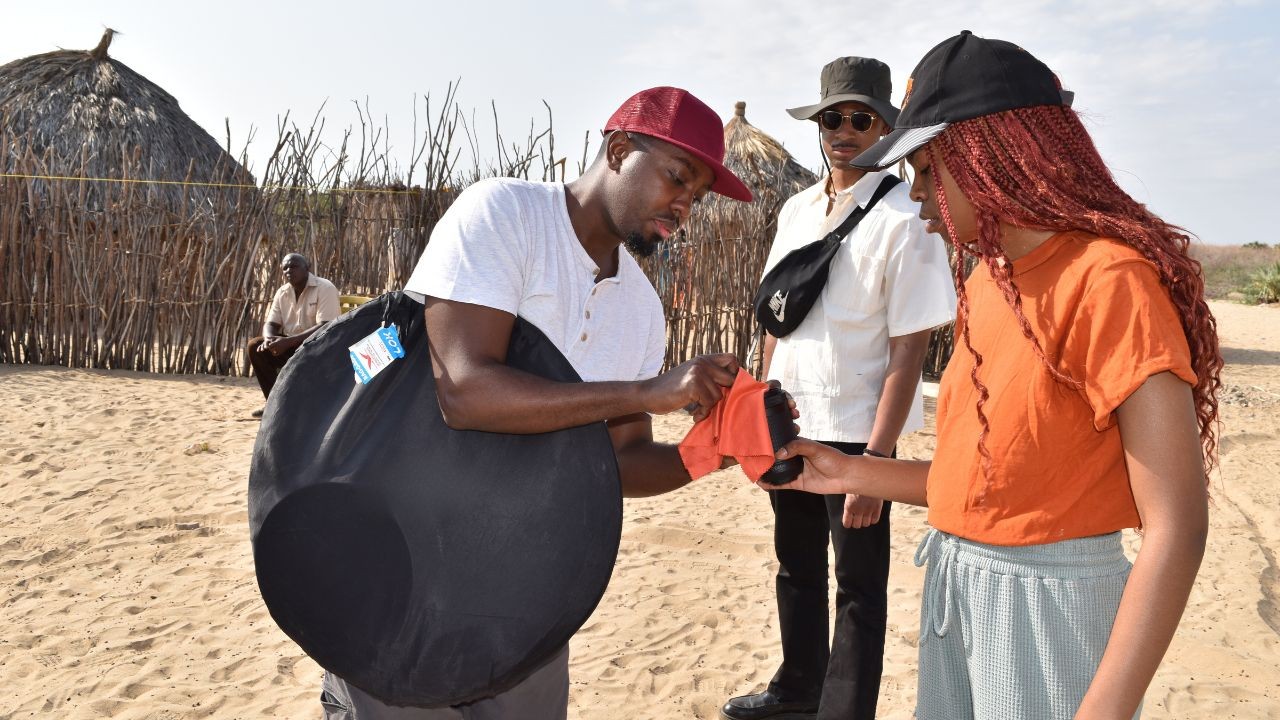
Chukwuma Okereke MPH'24 and Jasmine Aissata Kouyate GSAS'25 preparing to interview a farmer in Turkana county
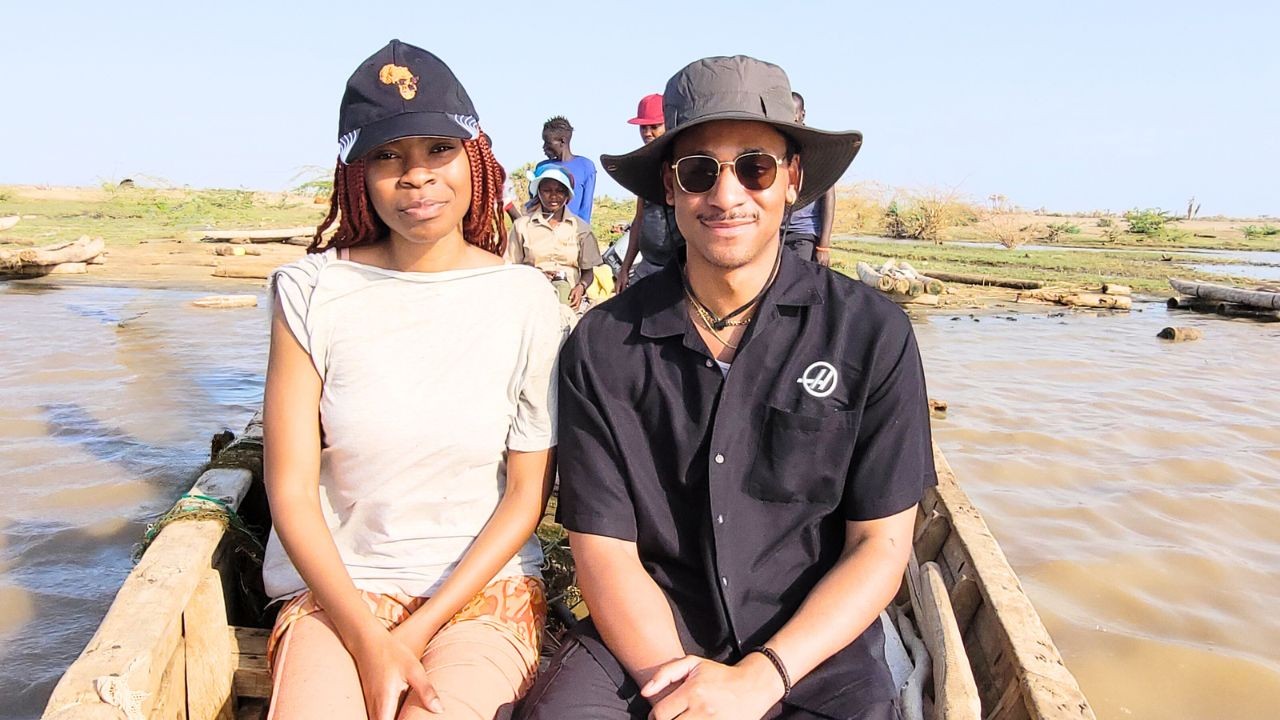
The fisherman's route - conversing and traversing Lake Turkana with Jasmine Aissata Kouyate GSAS'25 and Chukwuma Okereke MPH'24
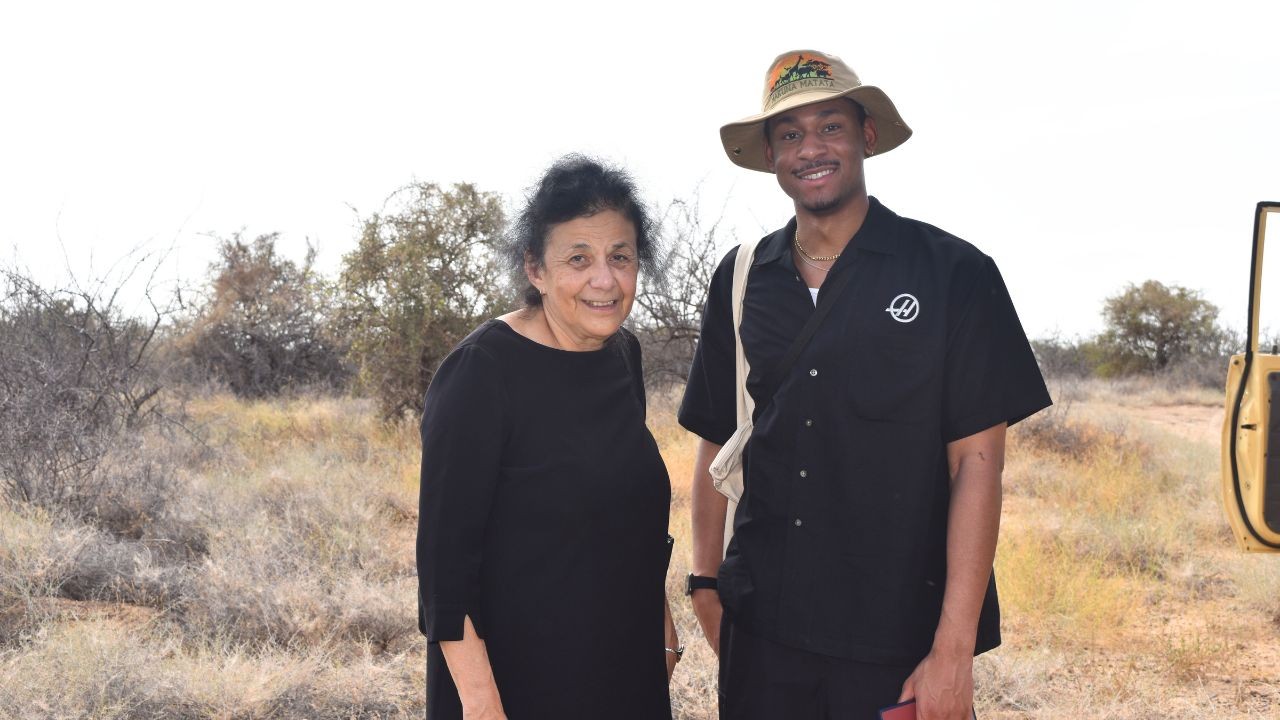
Chukwuma Okereke MPH'24 with Dr. Wafaa El-Sadr, the Executive Vice President of Columbia Global during the initial field site visit to Northern Kenya
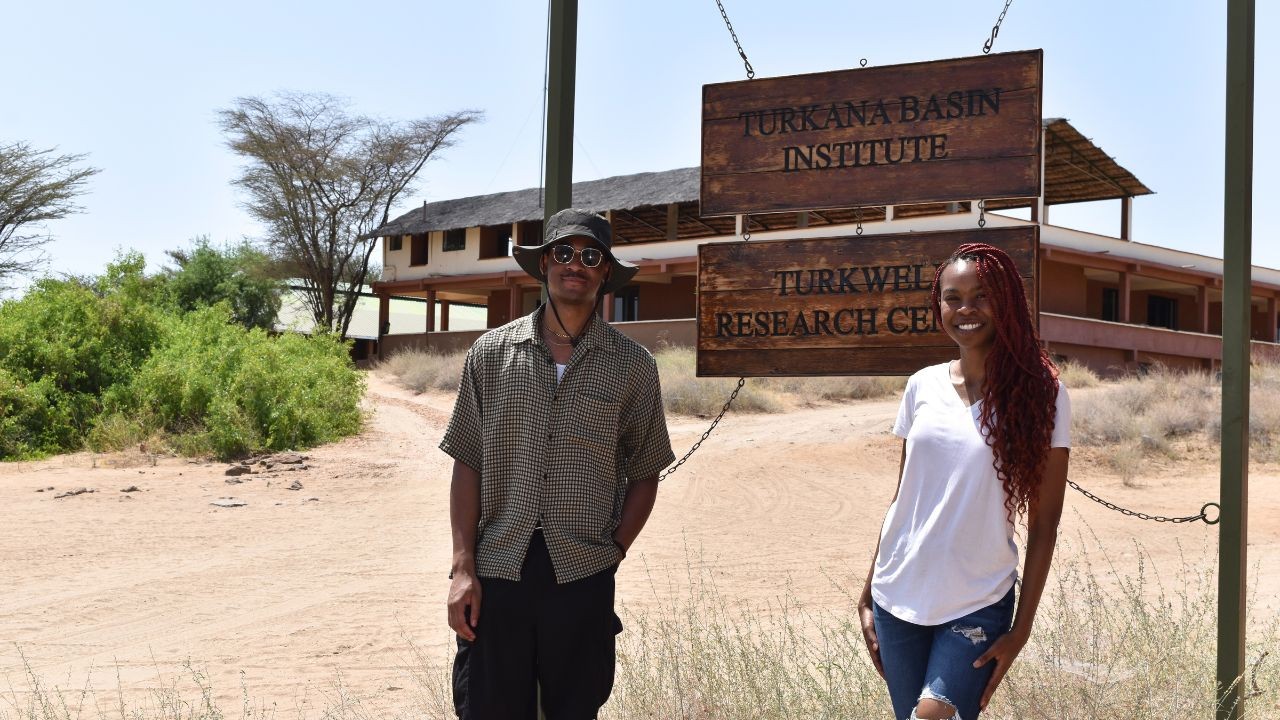
The journey comes to an end for Chukwuma Okereke MPH'24 and Jasmine Aissata Kouyate GSAS'25 pose for a photo at TBI as the climate change documentary comes to an end
During your internship at CGC | Nairobi, you had an opportunity to travel to the Northern part of Kenya to partake in a documentary filming exercise on climate. How was this experience, and what lessons did you draw from it?
Chukwuma: My experience traveling to Northern Kenya was informative and exciting as I visited an environment unlike anywhere I had been before. During the field visit, it was very interesting to see how the Turkana Basin Institute was innovating with their reverse osmosis machine to produce useable water from Lake Turkana and how they were collaborating with the community to manage their hydroponic garden and grow a wide variety of vegetables and fruits in that extremely dry environment. During my trip to Turkana for the documentary filming, it was insightful to interact with the families engaged in pastoralism and fishing and see the varied distribution of resources across livelihoods in this resource-limited environment. One lesson I gained from the trip is how linked nutrition and education could be and that incorporating school feeding programs could improve child nutrition and school attendance in an area where children are more likely to tend to the family's livelihood than attend hard-to-reach schools. Another thing I observed was how innovative and resilient these communities were, from viewing how their housing structures were built to how they adapted to severe droughts and flooding of their lands.
Jasmine: Traveling to the cradle of humankind, known today as Turkana in Kenya, felt generationally and ancestrally meaningful. As someone of West African descent, having the opportunity to experience and learn from various Turkana pastoralist communities felt surreal and poignant since I could make many cross-cultural parallels between Turkana's pastoralist communities and my ethnic group, the Mandinka people of Mali. From spending a day with a fishing community to an agricultural family, both opportunities exhibited the multi-faceted experiences, challenges, and overall resiliency of being a pastoralist amidst climate change and an increasingly globalized world.
What are some of your favorite moments, including cultural experiences you have enjoyed during your stay in Kenya?
Chukwuma: Some of my favorite moments during this internship have included my trips to Marsabit and Turkana counties. Along with getting me out of my comfort zone multiple times, I was able to see beautiful desert landscapes with camels and goats, visit the edges of Lake Turkana, and interact with different pastoralist and fishing communities and learn a lot more about their ways of life and the issues they face that have stemmed from climate change. Another favorite moment of mine was visiting the Bomas of Kenya and being able to listen to the varied music and see a variety of dances from the different tribes represented throughout Kenya. From being able to feed giraffes, to stand front row for horse races, to visit art galleries featuring amazingly talented young artists, there have been a lot of new and fun experiences that this internship has blessed me with the opportunity to have and for which I will be forever thankful.
Jasmine: I absolutely loved visiting the various arts and music spaces across Nairobi, including the Kuona Artists Collective, GoDown Arts Centre, Nairobi Gallery, and The Mist! I also love being in nature and hiking, so the National Arboretum, Mamba Village, and the Bomas of Kenya were big ecological and cultural highlights for me.
